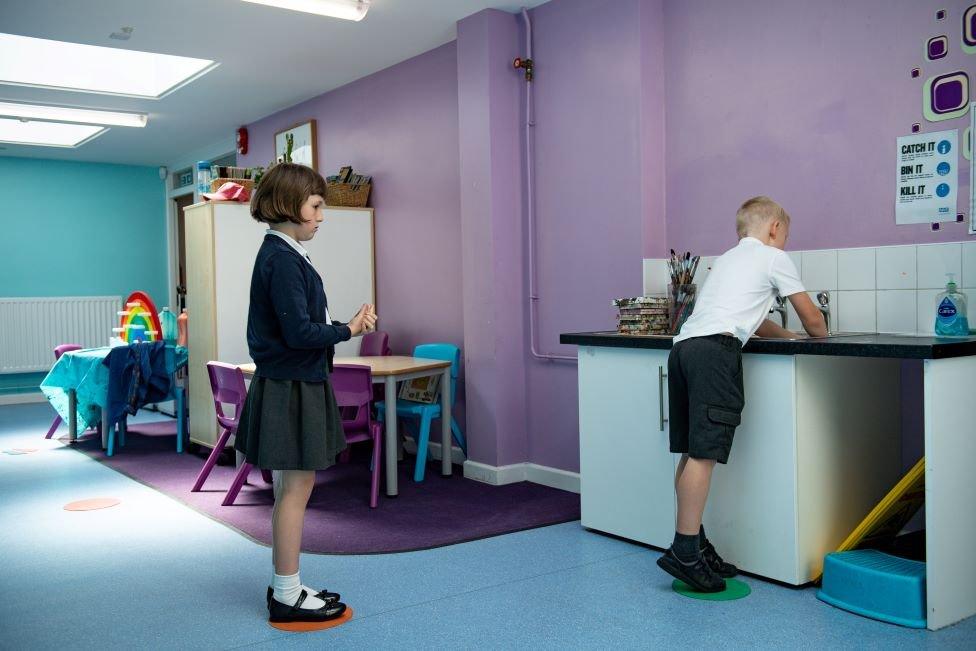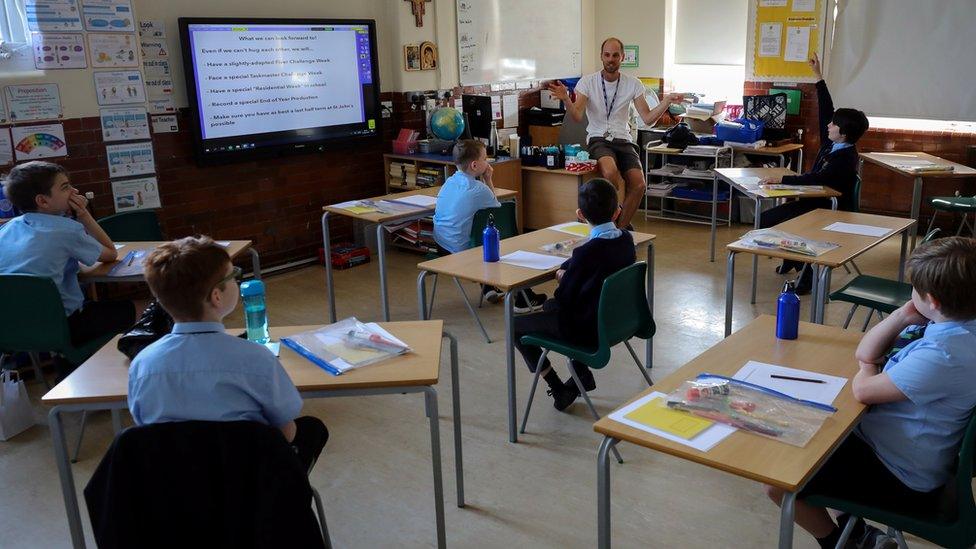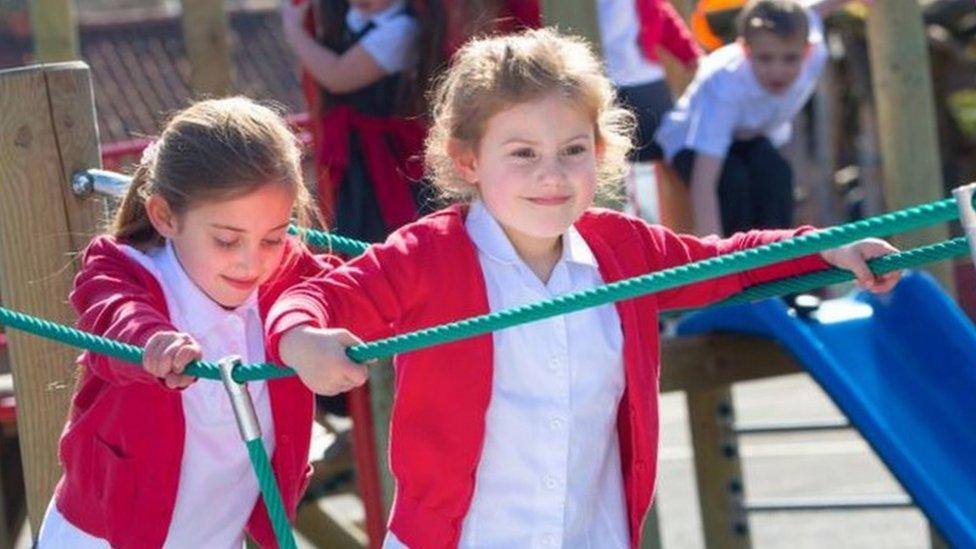Coronavirus: Studies look at how it spreads in schools
- Published
- comments

How exactly does coronavirus spread in schools? That's what two UK universities are hoping to find out.
Five million pounds of public money has been given to the University of Bristol and Imperial College, London to help schools understand much more about how the virus spreads.
The aim of the research is also to help schools develop ways to reduce the risk.
The researchers said that making sure pupils and staff stay safe after returning to school has been a major challenge because there is very little scientific evidence on transmission of COVID-19 within schools.
Limiting transmission of coronavirus in schools is also challenging because often children with often show no obvious symptoms and normally interact with a large number of other children and adults.
The project led by the University of Bristol, is called COVID-19 Mapping and Mitigation in Schools.

Protective measures like distancing, hand washing and cleaning can reduce risks of spreading the virus
It will look at around 5,000 staff and pupils over a six-month period, and test whether staff and pupils have current or past COVID-19 infection.
It will then make systems to help schools prevent and deal with a future outbreak, and come up with strategies to support the mental wellbeing of the school community.
The project will also look at wastewater from school drains to see the amount of the virus present, in case this can provide an early warning of changes in infection levels.
It's important we increase our understanding of infection patterns in schoolchildren, so schools can keep managing their operation as effectively as possible...We look forward to working with Bristol schools in the coming months and thank them for their help with the project."
As well as working with local schools, the university project also works alongside the city council and Public Health England.
There is already a Germ Defence app, which gives practical advice to adults to reduce infection spread in the home - but this will be adapted for use by children, teachers and parents in schools to help everyone reduce the infection rate at school and in the community.
COVID-19 Mapping and Mitigation in Schools (CoMMinS) is a 12-month study that will run until 31 July 2021.
- Published3 September 2020

- Published5 September 2020

- Published7 September 2020

